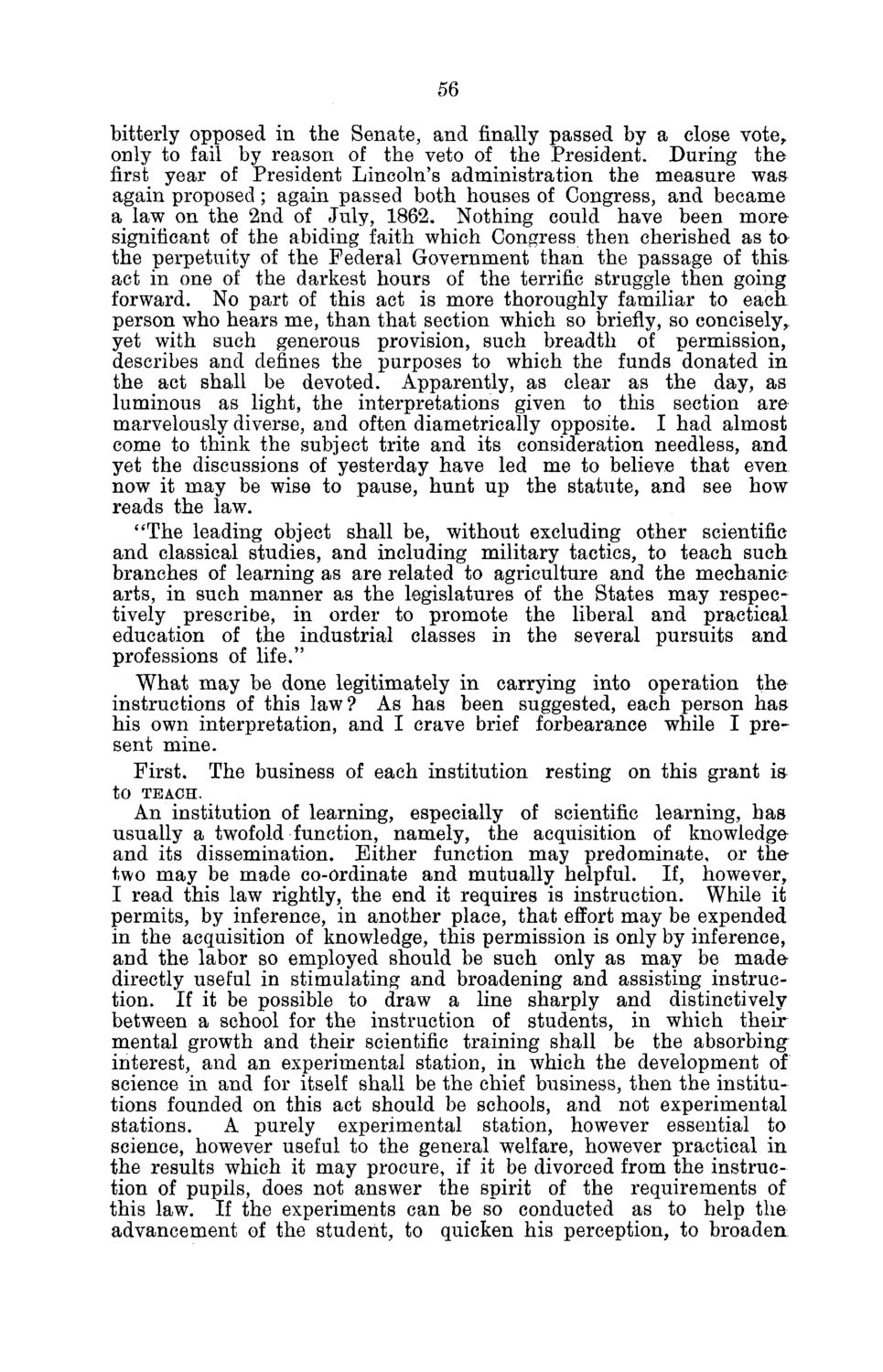| |
| |
Caption: Board of Trustees Minutes - 1882
This is a reduced-resolution page image for fast online browsing.

EXTRACTED TEXT FROM PAGE:
56 bitterly opposed in the Senate, and finally passed by a close vote, only to fail by reason of the veto of the President. During the first year of President Lincoln's administration the measure was again proposed; again passed both houses of Congress, and became a law on the 2nd of July, 1862. Nothing could have been more significant of the abiding faith which Congress then cherished as t e the perpetuity of the Federal Government than the passage of this act in one of the darkest hours of the terrific struggle then going forward. No part of this act is more thoroughly familiar to each person who hears me, than that section which so briefly, so concisely,. yet with such generous provision, such breadth of permission, describes and defines the purposes to which the funds donated in the act shall be devoted. Apparently, as clear as the day, as luminous as light, the interpretations given to this section are marvelously diverse, and often diametrically opposite. I had almost come to think the subject trite and its consideration needless, and yet the discussions of yesterday have led me to believe that even now it may be wise to pause, hunt up the statute, and see how reads the law. "The leading object shall be, without excluding other scientific and classical studies, and including military tactics, to teach such branches of learning as are related to agriculture and the mechanic arts, in such manner as the legislatures of the States may respectively prescribe, in order to promote the liberal and practical education of the industrial classes in the several pursuits and professions of life." What may be done legitimately in carrying into operation the instructions of this law? As has been suggested, each person has his own interpretation, and I crave brief forbearance while I present mine. First. The business of each institution resting on this grant is to TEACH. An institution of learning, especially of scientific learning, has usually a twofold function, namely, the acquisition of knowledge and its dissemination. Either function may predominate, or the two may be made co-ordinate and mutually helpful. If, however, I read this law rightly, the end it requires is instruction. While it permits, by inference, in another place, that effort may be expended in the acquisition of knowledge, this permission is only by inference, and the labor so employed should be such only as may be made directly useful in stimulating and broadening and assisting instruction. If it be possible to draw a line sharply and distinctively between a school for the instruction of students, in which their mental growth and their scientific training shall be the absorbing interest, and an experimental station, in which the development of science in and for itself shall be the chief business, then the institutions founded on this act should be schools, and not experimental stations. A purely experimental station, however essential to science, however useful to the general welfare, however practical in the results which it may procure, if it be divorced from the instruction of pupils, does not answer the spirit of the requirements of this law. If the experiments can be so conducted as to help the advancement of the student, to quicken his perception, to broaden
| |